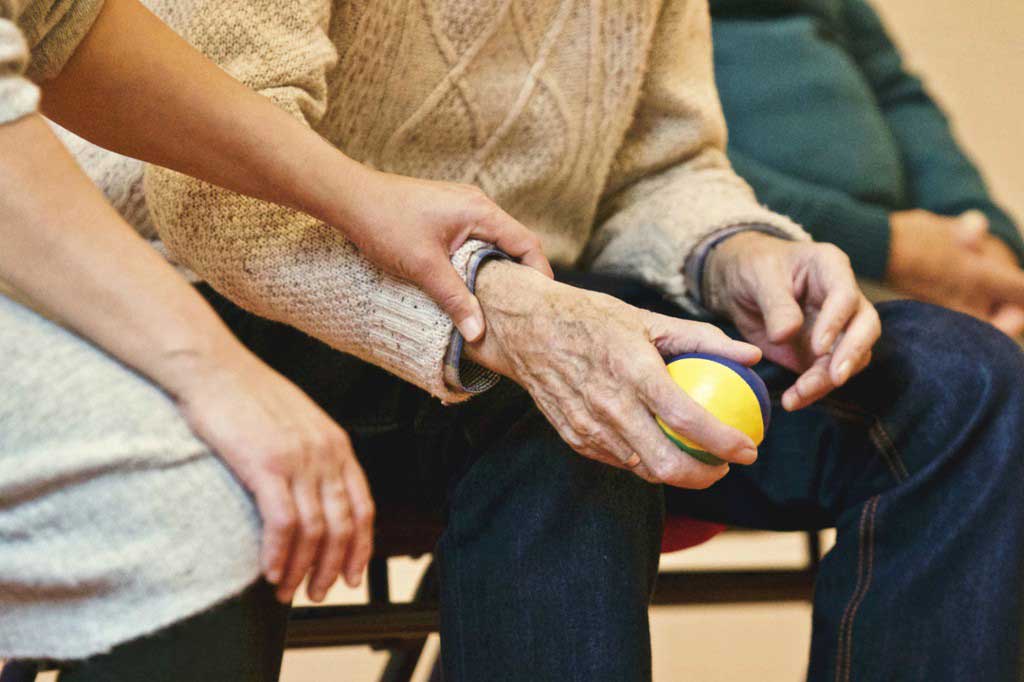Some over-the-counter drugs may be linked to falls in older men
Older people
"Popular over-the-counter drugs for hay fever and insomnia may increase the risk of a serious fall among older men," the Daily Mail reports after a study suggested anticholinergic drugs, which can cause side effects such…
"Popular over-the-counter drugs for hay fever and insomnia may increase the risk of a serious fall among older men," the Daily Mail reports after a study suggested anticholinergic drugs, which can cause side effects such as blurred vision and drowsiness, could increase fall risk.
The study followed just under 2,700 older Irish adults, who did not have dementia, for two years. It found older men who took anticholinergic medicines were about 2.5 times more likely to have a serious fall that caused injury. No such link was found in women.
But the reasons the men are taking the drugs in the first place may be contributing to their fall risk, although the researchers did take steps to take this into account. The authors have called for further studies to check their findings.
While the news focuses on over-the-counter medications, the most commonly used medications taken in this study were actually prescription medications. It is not possible to single out the potential risk posed by over-the-counter drugs.
The study is a reminder that people should always read medication labels, not take the drugs for longer than needed, and talk to their doctor to make sure the drugs do not interfere with any prescription drugs they are using.
Where did the story come from?
The study was carried out by researchers from Trinity College Dublin and other research centres in Ireland and the UK.
It was funded by Irish Life, the Irish Department of Health and The Atlantic Philanthropies.
The study was published in the peer-reviewed Journal of the American Geriatrics Society.
The Daily Mail focuses on over-the-counter medications, even though these were not among the most commonly used anticholinergic medications seen in this study. Most were prescription medications, such as antidepressants or drugs used to control bladder conditions.
The Mail does include a note from the study authors that people should not stop taking their prescription medication without talking to their doctor first.
What kind of research was this?
This prospective cohort study looked at whether anticholinergic medicines are associated with falls in older people. This class of drugs block the action of one of the nervous system's signalling chemicals called acetylcholine.
These drugs are used to treat a wide variety of conditions and symptoms, including incontinence, depression and psychosis. Some anticholinergic medicines are available over the counter, such as the antihistamine chlorpheniramine, which is used to treat allergies.
Older adults are reportedly often prescribed these drugs. They also may be taking more than one medication of this type, which may make them more susceptible to side effects.
Side effects can include blurred vision, drowsiness, an unsteady gait and confusion, all of which could increase the risk of falls in older people.
This study wanted to see whether data collected from older people taking these drugs supported this theory. A prospective cohort study is a good way to assess the link between an exposure (in this case, anticholinergic drugs) and an outcome (falls).
Setting up a randomised controlled trial (RCT) just to test whether a drug has an adverse effect would be unethical. As with all studies of this type, the main limitation is it cannot rule out all other potential confounding factors.
What did the research involve?
The researchers enrolled 2,696 adults aged 65 and over who did not have dementia and were living at home.
They asked them questions at the start of the study about what medications they took regularly. Participants were followed up over two years to see whether any of them had a fall.
Once they collected this data, the researchers analysed whether people taking anticholinergic medicines regularly were more likely to have fallen.
The adults in this study were taking part in a wider study called The Irish Longitudinal Study on Ageing (TILDA) and were recruited between 2009 and 2011.
The initial interviews asked people about what medicines they took regularly (every day or every week). This included prescription medications, over-the-counter medicines, vitamins, herbal remedies and alternative medicines.
The researchers also asked to see the medication packages to make sure the information was correct. For a sample of participants, researchers were also able to check what prescribed medicines the participants had been dispensed over the last 30 days.
The researchers ranked how much anticholinergic activity each of the medications had on a scale of 0 (none) to 3 (definite anticholinergic activity). They did this using the Aging Brain Care online tool, which is based on expert consensus and the literature.
They then added up the scores of all of the medications a person was taking to get their overall anticholinergic medication score.
The researchers also noted whether individuals were taking other non-anticholinergic medicines that have been linked to an increased risk of falls.
At follow-up in 2012, participants were asked whether they had fallen since the start of the study and, if so, how many times and whether they needed medical treatment as a result.
The researchers then analysed whether anticholinergic medication use was associated with a greater risk of falls. They took other factors into account that might influence the risk of falls, such as:
- gender
- age
- whether a person lived alone
- socioeconomic status
- health and behaviours, such as alcoholism
What were the basic results?
The study found 4% of the older adults reported regularly taking at least one medication with definite anticholinergic activity, and 37% reported regularly taking at least one medication with possible anticholinergic activity. These medications were often prescription medications, such as antidepressants or drugs for heart or bladder conditions.
About a quarter of the participants (26%) had at least one fall during the study, and in 13% this fall caused them injury that required medical treatment. Women fell more commonly than men. In women, no link was found between taking anticholinergic medications and risk of falls.
However, men who reported regularly taking medications with definite anticholinergic activity at the start of the study were about 2.5 times as likely to have an injury-causing fall as those who did not, (relative risk [RR] 2.55, 95% confidence interval [CI] 1.33 to 4.88).
There was no link between these medications and overall risk of falling or the number of falls in men. Regularly taking medications with possible anticholinergic activity was not associated with risk of falls in men.
When looking at how much anticholinergic medication men took, those with a total anticholinergic medication score of five or over (such as taking one medication with definite anticholinergic activity and one of possible anticholinergic activity) were more likely to have a fall (RR 1.71, 95% CI 1.03 to 2.84) and more likely to have a fall that caused injury (RR 4.95, 95% CI 2.11 to 11.65).
How did the researchers interpret the results?
The researchers concluded that: "The regular use of medications with anticholinergic activity is associated with subsequent injurious falls in older men, although falls were self-reported after a two-year recall and so may have been underreported." They suggest that further studies are needed to confirm this finding.
Conclusion
This relatively large cohort study found an association between taking medicines with definite anticholinergic activity and an increased risk of injury-causing falls in older men, but not women.
The fact that data was collected prospectively is one of this study's strengths, as is the fact that interviewers checked medicine packages to confirm self-reported medication use and could check prescription medication records for some patients.
However, this study did have some limitations:
- Medication use was only assessed at the start of the study and may have changed after this.
- Falls were self-reported. Participants may not have remembered all falls, particularly those that did not require medical attention.
- Even though the study was relatively large, the numbers in some groups were small once divided into men and women, medication usage, and those who had falls or not. For example, there were only 50 men and 68 women who were regularly taking at least one medication with definite anticholinergic activity.
- Confirmation of these findings in a larger sample size would increase confidence in the results.
- Although the researchers took possible confounders into account, some factors could have affected the results. For example, men who take a lot of anticholinergic medications may be doing so for conditions that increase their risk of falling – for example, heart conditions.
- News reports have focused on anticholinergic medications available over the counter (such as antihistamines), but these were not the most commonly taken anticholinergic drugs in this study. The exact numbers of people taking these over-the-counter drugs was not reported.
While this study suggests a link worthy of further investigation, people should not stop taking any prescription medication without talking to their doctor first.
Regardless of whether or not the results are eventually confirmed, it is worth remembering that over-the counter-medications are not free from side effects or potential complications.
Always read the information leaflet that comes with any medication carefully, to make sure it is suitable for you.






 Subscribe
Subscribe Ask the doctor
Ask the doctor Rate this article
Rate this article Find products
Find products








